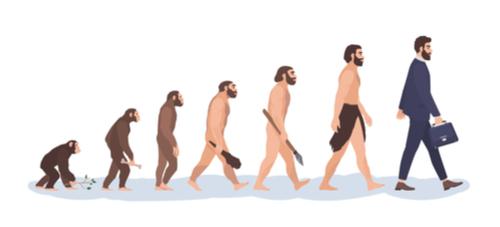Are we at risk of a technology-saturated future?
As Yuval Noah Harari asks hard questions about technology and humanity, the CEO of GovGrant considers the threats and opportunities ahead for accountancy
As Yuval Noah Harari asks hard questions about technology and humanity, the CEO of GovGrant considers the threats and opportunities ahead for accountancy

The Sunday Times reviewed Yuval Noah Harari’s latest book 21 Lessons for the 21st Century recently. The reviewer, journalist Jenni Russell, didn’t pull her punches. “We are running out of time to deal with the biggest challenge our species has ever confronted,” she warned, citing the threats of technology and global warming as existential threats to the future of humanity.
Harari first found fame through his bestselling book Sapiens, which traced the history of humanity over the past 70,000 years.
Now he argues in his new work that time is running out. Technology will create huge inequality, as billions of us are replaced in our jobs by robots and cause us to lose our sense of what it means to be human. What happens to us if work vanishes?
In particular, Harari singles out the gathering of data, and the power of those who control data, to undermine fundamental assumptions we have about ourselves. Data owners will develop biotech sensors that can measure and interpret our responses, and what we are thinking. Repressive regimes will thus be able, through biometrics, to interpret our thoughts about that regime, whether positive or negative.
Sci fi films that tell of machines which develop consciousness, such as I Robot, or Ex Machina, are less of a concern to the author than the ability of machines to apply machine learning to understand us even better than our nearest and dearest, unleashing a wave of bots to sell us stuff, from politicians to ideologies and cars to holidays.
“Bots could identify our deepest fears, hatreds and cravings and use those inner leverages against us,” although, chillingly, it would all seem perfectly natural because the sales patter will chime so exactly with our feelings, emotions and desires.
Those who control algorithms, and control our digital lives, will become hugely more powerful than even now. Harari warns of ”digital dictatorships”, where a tiny elite control all the power and have the resources to build themselves into biologically superior beings by buying into developments in genetics and biotechnology.
These dark predictions are exacerbated by our seeming powerlessness to do anything much to stem the flood. We are so busy trying to jump the hurdles of everyday life that we don’t have the capacity to think and act.
“History gives no discounts. If the future of humanity is decided in your absence, because you are too busy feeding your kids, you and they won’t be exempt from the consequences.”
We are all focused on taking advantage of technology. Indeed, GovGrant’s business helps technology companies, among others, take advantage of the generous tax breaks for R&D and for Patent Box. Our clients have helped society do things quicker, better and more cost effectively. That is a good thing and we are proud of our track record in claiming £160m back for thousands of clients over the years.
However, it is important that we collectively and individually think through the impact of technological advancements on our society and on ourselves. The message of Yuval Harari’s book is that we need to be ready, and aware of and prepared for the seismic impact of technology on our future lives.
If technology leads to millions of people having no work, whether they be lawyers, accountants, doctors, taxi drivers, factory workers or farmers, we need to understand how our lives must adapt to make sure that we continue to have purpose and fulfillment. Or that, through regulation, we begin to row back from giving away our data to tech giants in return for free ”stuff”.
Homo sapiens finds longevity through adaptability. Harari’s message is pessimistic but not hopeless. Can we discover the space and the opportunity, among all the noise, to create the future as we want it to be?